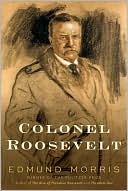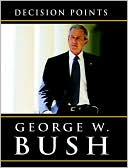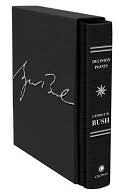Confessions of a Tax Collector: One Man's Tour of Duty inside the IRS
Twelve years ago, Richard Yancey answered a blind ad in the newspaper offering a salary higher than what he’d made over the three previous years combined. It turned out that the job was for the Internal Revenue Service — the most hated and feared organization in the federal government.\ So Yancey became the man who got in his car, drove to your house, knocked on your door, and made you pay. Never mind that his car was littered with candy wrappers, his palms were sweaty, and he couldn’t...
Search in google:
A produced playwright, former theater critic, and published novelist, Yancey worked for the Internal Revenue Service for 12 years, beginning in 1990. His account of life in the IRS—with the names, personal appearances, and histories of the real individuals changed to protect their identities—reads like a novel, and provides a firsthand view of the institution, its policies and practices, its particular workplace culture, what it's like to learn the ropes as a trainee, and life as a full-fledged revenue officer. No subject index. Annotation ©2004 Book News, Inc., Portland, OR Publishers Weekly After failing at a number of jobs, Yancey joined the IRS as a revenue officer in 1991 when he answered a want ad in the newspaper. As a revenue officer, Yancey was charged with collecting taxes from delinquent taxpayers. At the start of his career, Yancey was ambivalent about working for the IRS, but the longer he stayed with the organization the more seriously he took the job. A turning point came during a seizure (when the IRS seizes property from people who have been unable or unwilling to pay taxes), when Yancey stumbled across a band of tax protesters and took it as a personal challenge to root out as many protesters as possible and in the course of doing so found himself living for his job. Yancey's account of his 12-year career starts out as a lighthearted look at his early days as an IRS trainee, but the tone is more somber and reflective as he becomes more enmeshed in his job, breaks up with his girlfriend, and finds himself isolated from nearly everyone outside of his workplace. There is a happy ending to the story, however, as Yancey marries his supervisor, quits the service and fulfills his dream of writing a book. His description of what life is like inside the IRS is generally engaging and shows the fallibility of a system that comprises, after all, men and women who have their own strengths and weaknesses. (Mar.) Copyright 2004 Reed Business Information.
\ Boston Sunday Globe"A rich mix of humor, horror, and angst ...better than most novels on the bestseller lists."\ \ \ \ \ Minneapolis Star Tribune"Offers fascinating insight into the most feared and loathed agency of government."\ \ \ Booklist (starred)“Downright absorbing ...written as well as any novel set in the business world.”\ \ \ \ \ Washington Post"Alternately amusing and alarming ...a revealing yarn about going after tax delinquents."\ \ \ \ \ (starred)"Downright absorbing ...written as well as any novel set in the business world."\ \ \ \ \ Washington Post“Alternately amusing and alarming ...a revealing yarn about going after tax delinquents.”\ \ \ \ \ Boston Sunday Globe“A rich mix of humor, horror, and angst ...better than most novels on the bestseller lists.”\ \ \ \ \ Minneapolis Star Tribune“Offers fascinating insight into the most feared and loathed agency of government.”\ \ \ \ \ Publishers WeeklyAfter failing at a number of jobs, Yancey joined the IRS as a revenue officer in 1991 when he answered a want ad in the newspaper. As a revenue officer, Yancey was charged with collecting taxes from delinquent taxpayers. At the start of his career, Yancey was ambivalent about working for the IRS, but the longer he stayed with the organization the more seriously he took the job. A turning point came during a seizure (when the IRS seizes property from people who have been unable or unwilling to pay taxes), when Yancey stumbled across a band of tax protesters and took it as a personal challenge to root out as many protesters as possible and in the course of doing so found himself living for his job. Yancey's account of his 12-year career starts out as a lighthearted look at his early days as an IRS trainee, but the tone is more somber and reflective as he becomes more enmeshed in his job, breaks up with his girlfriend, and finds himself isolated from nearly everyone outside of his workplace. There is a happy ending to the story, however, as Yancey marries his supervisor, quits the service and fulfills his dream of writing a book. His description of what life is like inside the IRS is generally engaging and shows the fallibility of a system that comprises, after all, men and women who have their own strengths and weaknesses. (Mar.) Copyright 2004 Reed Business Information.\ \ \ \ \ Library JournalCome April 15 each year, most people pay their taxes on time, but those who avoid doing so are invariably called upon by the likes of Yancey, who recounts his 12-year career as a revenue officer for the Internal Revenue Service. Yancey chronicles how he would hunt down individuals, often hounding them until they paid their delinquent taxes, while laboring in an almost Kafkaesque work environment. His breezy confessional style is often humorous yet sometimes terrifying, as he discloses the various methods "the service" (as it is referred to by IRS employees) utilizes to get people to "pay up"-at the cost of a real psychic toll to himself and his colleagues. In the book's final pages, the author does mention the Revenue Restructuring Act of 1998, which has gone a long way in curbing many of the questionable enforcement actions he describes. Yancey comes across as a decent, humane guy, certainly not your typical tax inquisitor, who has succeeded in writing an engaging insider's account of life inside the dreaded IRS. (Readers wanting to read more about other misdeeds of the IRS should peruse John A. Andrew's Power To Destroy.) Recommended for larger public libraries.-Richard Drezen, "Washington Post," New York City Bureau Copyright 2003 Reed Business Information.\ \








